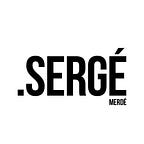Travis Scott finds his voice in a grand fashion
If you listen to Rodeo, Travis Scott’s first record, very closely, you can hear 30-second snippets of potential. Seminal instances of 30 seconds or less that set the precedent for Birds in The Trap Sing McKnight. They were temporary moments of bliss that sounded like Scott was on the precipices of climbing a few ranks in the musical echelon. Unfortunately, those moments were few and far between, fading almost as instantaneously as they appeared. The question with BITTSM (yeah, I know) always was whether or not he could take those moments of excellence from Rodeo and stretch them into full songs.
Let’s get one thing out of the way first, we got two (2 ( DOS!!!)) Andre 3000 verses in the past 2 weeks. I hope we all said our goodbyes because he is about to disappear in the Appalachian Mountains on some holier than thou bohemian self-discovery shit. The quality of guest appearances on the album can often speak a volume more than the songs themselves. They can attest to artists’ style, cache or even perceived influence in certain circles (of course it could also just mean someone got paid an amount that could only be delivered using a dump truck directly into the driveway). The guest appearances on BITTSM are staggering, but so is Travis Scott.
When Rodeo shone bright it was when Travis Scott used his own voice almost as a stylized synth, murmuring in the background to pull out the rest of the song. The production on Birds pulls that out and purifies it. The production is unconventional but it wraps itself around the lyrics, slowly building itself up. The Ends opens with a Zimmer like build up into the verse before coming right around into a bass-y stroll. It drops out periodically into the song to allow Travis’ voice to serve as the beat itself, synthed up and altered almost beyond recognition to carry the song.
Most of the album continues to play with your expectations in a similar fashion. Scott is never static on the track whether he’s rapping, singing or feeling in audio holes with a mix of moans and grumbles typical for Young Thug (who features on the marquee single “Pick Up The Phone”). The album feels almost symmetrical in it’s composition. Listening in order you can’t tell when one track drops out and another one begins. Beats change mid-song as opposed to between songs, playing with your expectations of traditional structure. You have to be constantly aware of what’s going on because of this.
The way the album is structured does not allow for one part to dominate the other but instead lines up the musical cues in an order which feels inherently chaotic but slowly reveals itself in a pattern. On “Biebs in the Trap” (A+ song name) even Nav’s voice is structured to resemble that of the titular singer. The song has an almost overpowering baseline which drops out at the most opportune moments, silencing itself just long enough reveal the bare bone snares that are almost aggressive. It’s a fun track because for all the simplicity of the actual track, the singing is almost melodic, disjointed from the low vibe production.
Travis Scott merges to accentuate the strength of his guest appearances as production also molds itself around whoever is performing. When Kendrick Lamar comes in on Goosebumps, the base drops out slightly to allow his voice to contort itself over it with yet another flow. As the world freezes in anticipation when Lamar raps so does the track, allowing for wiggle room to push his voice into three different pitches across a verse that can best be described as “some Basquiat shit.”
It is most noted on both Kid Cudi appearances on the album, reprising his Man on the Moon persona and vocals to infuse the subsequent procession of “Way Back,” “Coordinate” and “Through The Night” with a sense of melancholy that is almost jovial in it’s nature, which is the kind of sound that permeates itself through Birds. Much like his guest star, Travis Scott emerges from the depth as the Trap Kid Cudi, embracing the lifestyle, drugs in toe, a documentarian of being lost in the substance. The whole album sounds like you’re submerged in a cup of syrup, floating close to the surface in case you need to occasionally swim up and breathe in some air. It’s a slow, oozing walk through one man’s confessional.
Scott excels when the beat slows down and opens up spaces for him to use his voice as just another instrument. He embraces the alternation process of his own vocal cords through synthesizing sounds not found in nature and layering them across the 14 tracks in its entirety. He is almost never alone on the track, which may serve as a sign that he’s not ready to carry a whole performance a la Frank Ocean, but what is hear is meaty and substantial. It is a moment of transcendence of discovery of style. Scott perceives his vocals as an instrument and stylizes it as such, leading to some very interesting results across Birds, and also serving as an indication on why the mastering process may have occupied more time than expected.
